Hear a Whooshing Sound When Stepping On the Brake Pedal? (What It Means)
You brake and instead of slowing smoothly, hear a loud “whoosh.” This unexpected noise indicates an issue with your braking system.
Though your vehicle may still brake normally so far, ignoring this warning sign is risky business. Let’s look at the possible causes of a whooshing or hissing sound when stepping on the brakes.

What Exactly Is a “Whooshing” Sound?
The concerning noise starts subtly as a faint hiss when you first press the brake pedal instead of the familiar friction of pads meeting rotor. Upon further driving though, it progresses into a louder, rushing empty tone reminiscent of wind blowing across a bottle’s opening.
The ambiguous “whoooshhh” makes itself known whenever brakes are applied with moderate pressure (more prominent at highway speeds).
Simultaneously, braking feels spongier, needing more pedal travel downward to achieve the same reduction in velocity. The loud noise sounds disconcertingly like air escaping somewhere in the essential braking system. Brakes shouldn’t gurgle and whoosh; they should provide the clean grind of components reliably slowing your vehicle.
Possible Causes of the Whooshing Sound
#1 – Air in the Brake Lines
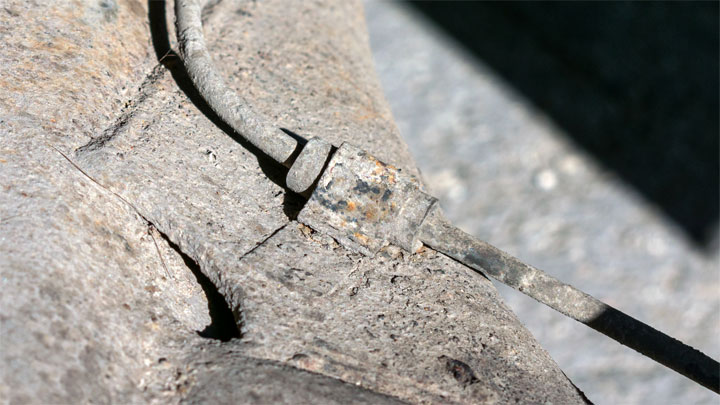
Air in brake lines often starts harmless but this eventually concerning culprit is likely if the whoosh comes and goes. Pumping the brakes can purge the air out the lines eventually but you’ll probably experience spongy brakes in the meantime.
However, air got in somehow, whether a leak, letting fluid level drop, or servicing the system recently. Moisture and brake fluid contaminants can now infiltrate as well and cause corrosion, impaired function over time.
Topping off fluid and bleeding lines to remove air pockets solves the immediate issue but monitor for fading performance.
#2 – Worn Brake Pads
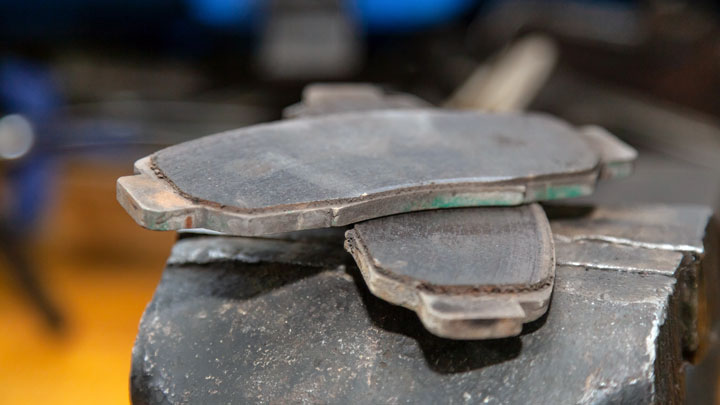
If you’ve started to notice reduced braking power, loud squealing when braking, or increased pedal travel to stop, your pads are likely too thin to connect properly with the rotor. This allows space for air pockets between components, making the whooshing sound.
If this is the case, the time for brake pad replacement is now. If the pads are at or past the minimum thickness level, damage to rotors and calipers may be the result and that will cost a whole lot more to fix.
#3 – Vacuum Booster Leak
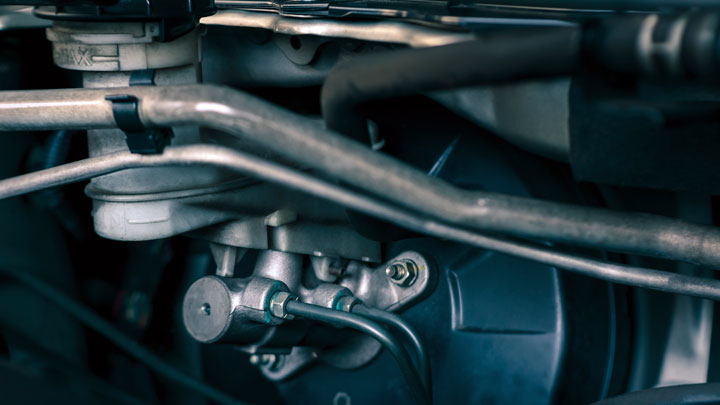
The brake booster multiplies pedal force when aided by engine vacuum. Cracked housing or failed internal diaphragm prevents proper vacuum buildup to apply hydraulic pressure.
Braking itself then relies on manual leg strength instead, with high effort and whooshing influx of air. Master cylinder seals, hoses, or fluid leaks can also introduce air and result in a hissing sound. Have these brake components inspected and the leak source repaired promptly.
Diagnosing the Root Cause
Thoroughly evaluating the specifics of the whooshing noise and when it occurs is key to identifying the root cause. Use these inspection methods:
Visual Inspection
- Check brake fluid reservoir level in master cylinder.
- Look for stains/wetness indicating leaks at calipers, brake lines, hoses or spots beneath vehicle.
- Inspect pads/rotors for extreme wear, cracks, or uneven patina indicating overheating.
- Look for external damage or rust to brake components.
Test Braking System Response
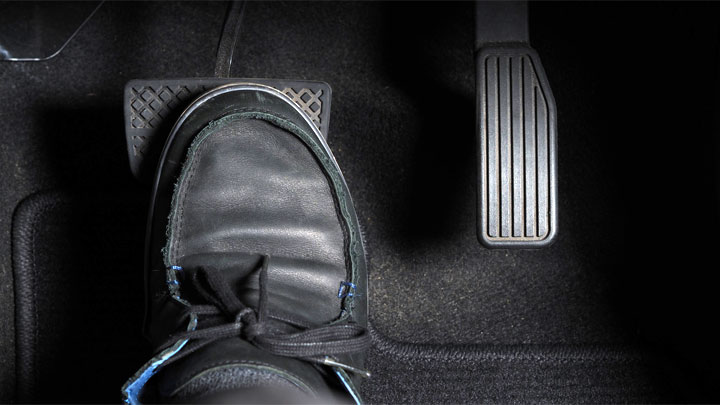
- Pump pedal to check for spongy/sinking feel signaling air or fluid loss.
- Does pedal require extra travel distance to engage? Takes more pressure? This points to pads wearing thin.
- Test using parking brake alone to isolate sound to hydraulic system.
Listen While Operating
- Have an assistant press brake pedal firmly while you listen underhood to pinpoint the location.
- Does noise arise from one wheel area or evenly across system?
- Does the sound only occur when the pedal is pressed partway vs fully? During certain steering wheel positions?
Evaluate Performance Changes
- Does the vehicle require more distance to stop?
- Does it brake unevenly pulls left/right/pulsates?
- Any smells or noises accompany whooshing sound?
When to Get Professional Help
While minor air in lines might purge naturally in some cases, it’s best to err on the side of caution with brake system irregularities. Any components prone to vacuum leaks (ie: booster diaphragms, master cylinder seals, etc.) require special tools and training beyond DIY.
Let a professional mechanic confirm if picking up problematic patterns like the noise making itself known only when the brake pedal pressed partway, louder turning inone direction, or pulling side to side when stopping.
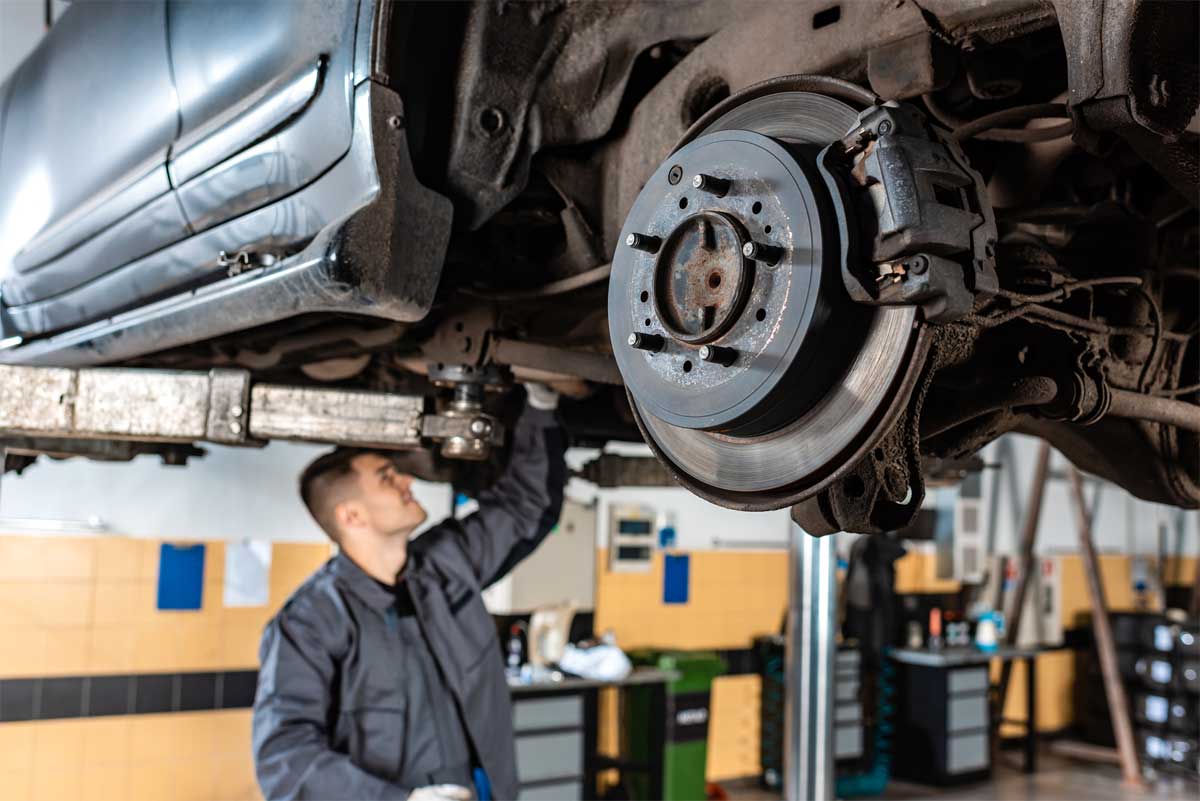
Likewise, have them inspect rotor condition as worn pads can indicate deeper issues ahead. Remember that you rely on brakes to prevent life-threatening accidents every time you drive. Allowing continued wear past manufacturer specifications, driving with leaks, ignoring odd sounds heightens the risk of brake failure later on.
Seeking a diagnostic inspection when problems first appear can minimize costs in the long run. Minor leaks caught early may just require new seals versus an entire master cylinder replacement if left alone.
Don’t brush off any signs of compromised performance or component damage accruing when brakes behave unusually. Whooshing is the system saying it requires attention, so have it examined and repaired to keep you safe.
Preventing Future Occurrences
Once the root cause gets addressed, take proactive steps to maintain the braking system and prevent repeat issues leading to compromised function or whooshing sounds returning.
Follow manufacturer’s brake inspection recommendations, typically every 6 months or 6,000-10,000 miles. Don’t exceed maximum thickness wear limits on pads/rotors. Change fluid as scheduled, every 2-3 years, to prevent moisture contamination in lines.
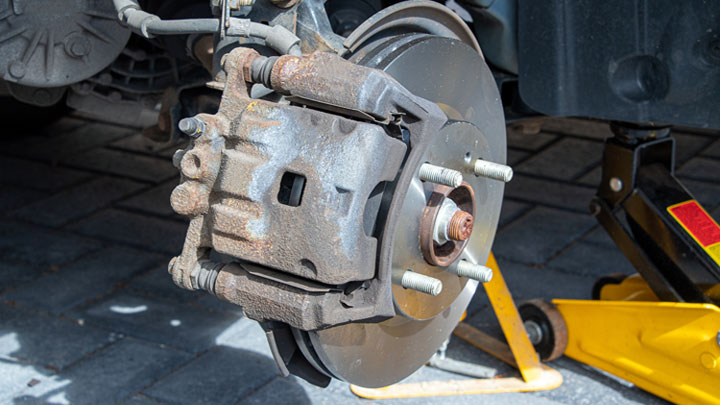
Address minor leaks, sounds, vibrations immediately rather than allowing damage progression. Small repairs are cheaper than entire component replacements later on.
Practice good brake use habits like: don’t ride your brakes unnecessarily causing overheating, let brakes cool before washing your car, and don’t be aggressive with braking (mashing the brake pedal) unless absolutely necessary.
Test the parking brake monthly by setting it firmly and trying to roll the vehicle slightly. Keep holding tension until fully stopped. Adjust as needed.
Whooshing alerts that air has infiltrated system where further moisture, debris and brake fluid leaks can occur. Getting the underlying cause repaired then staying vigilant on maintenance keeps all components intact, extending part lifespan and performance safety.
Don’t ignore warnings of damage progression. Addressing problems early and improving driving and inspection diligence makes whooshing less likely to return.
- Replace the Engine or Replace the Car? (11 Factors to Consider) - Apr 11, 2024
- Plastic Piece Dragging Under Your Car? (What It Is and What To Do) - Mar 21, 2024
- Timing Belt vs Timing Chain (What’s the Difference?) - Feb 27, 2024
